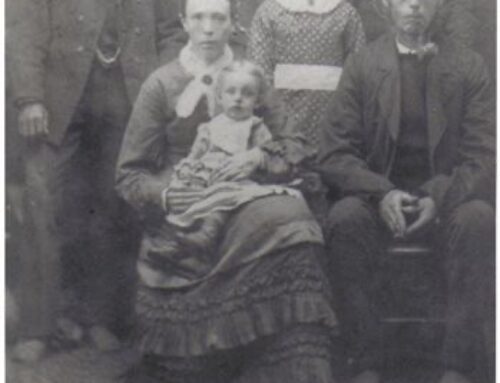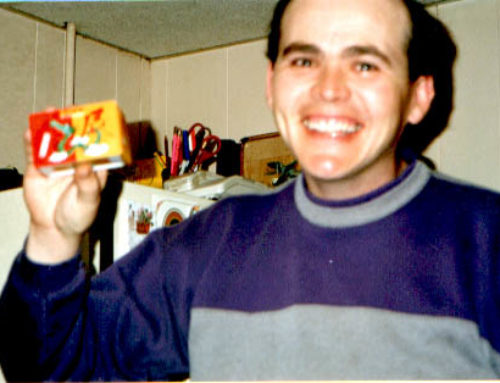“What is the sense of ruining my head and erasing my memory, which is my capital, and putting me out of business? It was a brilliant cure, but we lost the patient.”
Ernest Hemmingway
————————————-
I can’t remember exactly when it happened, but my first “real job” with the hospital TV rental company, eventually morphed into working as a nurse’s assistant on 6-D East.
The company was bought out by the hospital during a major renovation that would be completed in 1980. 6-D East was the closed psychiatric ward at St. Mary’s, and like almost all the hospitals in Rochester, Minnesota at that time, St. Mary’s was staffed with doctors and medical technicians who were actually employees of the world famous Mayo Clinic. The nursing and maintenance staff were under the management of the hospital itself. This (I now believe) exacerbated a power rift that tended to form in those days, between doctors who gave orders, and nurses who carried them out. 6-D East had the added feature of a well-entrenched head nurse and core staff to deepen that rift until it was a veritable chasm.
It was late 1977. Just two years after the release of One Flew Over the Cuckoo’s Nest and here I was, an independent-minded eighteen-year-old (and budding rebel) under the cool, controlling eyes of Rochester’s very own Nurse Ratched. Of course I tried to follow the rules. After all, I was a “good boy”. But it didn’t take long for me to get the feeling that little of what we did on the ward was for the purported purpose of helping the people under our care.
I now believe that the primary expectation was for the hospital staff to support the smooth operation of a system that…
#1, Provided steady jobs for hospital staff.
#2, Provided a stable atmosphere for the Clinic doctors in training to get psych experience.
#3, Provided the Mayo Clinic’s top psychological specialists to have a laboratory in which to test their theories and experimental treatments.
Ok so I might be exaggerating a bit on the conspiratorial side of things but then again… maybe not!
I imagine that I may have been seen as an asset in the eyes of our head nurse. I was a large, young male that was eager to help with a strong body and work ethic. I was also a natural people person with a gentle disposition and (in my humble opinion) above average intelligence. What they may not have foreseen however, was how those very traits would drive me to question, challenge and eventually work against (in vain unfortunately) their system of obvious (to me anyway) healthcare hypocrisy.
On 6-D East, I witnessed, a number of situations and incidents that my adult self would now judge to be systematic insanity. Indicators that I had unwittingly ventured deep into the heart of the bureaucratic nightmare. And the actual nightmare made manifest in the lives of these poor souls directly affected. Moral outrage would have been my response had I the awareness to feel it consciously, but in my youthful myopia, all I managed to muster was a typically teenaged angst.
There was the depressed elderly gentleman deemed suicidal because of his disconnected children’s inability to process the man’s deep sadness over the loss of his wife of over 50 years. They dumped him on 6-D East where he was experimented on with electro convulsive “therapy” (ECT) they believed might get him off the ward and back home in short order, since his insurance wouldn’t support the intensive psychotherapy coupled with some family counseling that might have actually helped.
I was the only one in the room when he awoke from his first treatment and instead of getting up slowly as ECT patients were supposed to do, he bolted out of bed and it took all my considerable strength to keep him from hurting himself until help arrived. I’ll never forget the look of sheer terror in that poor man’s eyes. The “shock docs” then decided to try a “unilateral” rather than “bilateral” placement of the ECT device’s electrodes on the man’s head and it worked. He became a zombie like the rest of the ECT patients and everyone was happy.
Then there was the case of a catatonic young heroin addict curled up in the corner of his locked room. This was one example of ECT I witnessed where I actually thought there may have been some practical use for it. But of course the “professionals” of 6-D east didn’t get that. For the first two treatments the catatonic young man showed no change. He was picked up from his corner, placed on the bed and shocked. When he awoke, he went quickly back to where and how he’d been before.
But after his third treatment he sat up well before normal and lucidly said “Hi” and before long was talking normally to me. It was my turn to be shocked! I documented everything better than I’d ever done before (documentation was admittedly my weakest point in this job) and expected the doctors to stop the ECT treatments to study this unusual reaction. But… apparently no one with authority wanted to counter the order by whomever the doctor was who’d ordered it, and so they just continued on with his schedule of twelve treatments and he became a zombie like the rest of the ECT patients and everyone was happy.
Compare those with the story of the top Mayo Clinic brain surgery specialist who had a dramatic “psychotic break” and ended up in one of our locked rooms with nothing but a mattress. I witnessed this medical genius rolling around singing children’s songs and threatening anyone who came near until subdued with Thorazine. In our break room I overheard head nurse Gladys Born (aka Margret Ratched) talking about how the top doctors were divided over trying ECT on him (ECT was a popular thing to try on a variety of disorders in those days) because they were worried about the inevitable memory loss affecting all that valuable knowledge in his head. In the end they did not use ECT and conducted extensive, long term therapy that apparently worked quite well and everyone was happy.
There were plenty of incidents I found hypocritical and/or just badly handled that had nothing to do with ECT, and plenty of things happened that affected me emotionally on 6-D East that I couldn’t say had anything directly to do with the hypocrisy, I here and now charge the powers that be. But I do believe that these all eventually combined to push my above-mentioned teenaged angst into a state of helpless resignation.
My enthusiasm was gone, even for the few surreptitious acts of rebellion in which I engaged on occasion. My charting, which had never been stellar, was now perfunctory and began to be criticized by my supervisor. I started coming to work with a less than completely clean uniform and that led to me being spoken to by the head nurse about…
“Perhaps you’d like to talk to someone about what might be bothering you”.
As you can imagine this scared the bejesus out of me. I started worrying that someone would take my key away before I could leave the ward.
I quit within a week.





